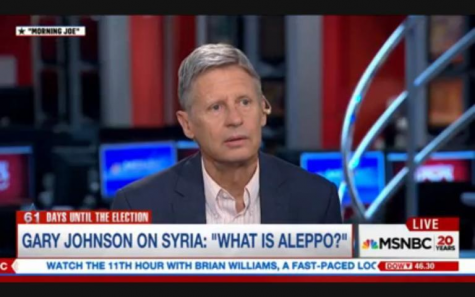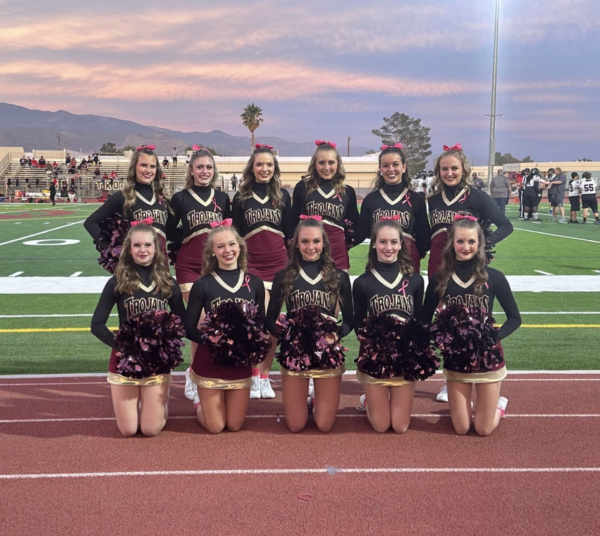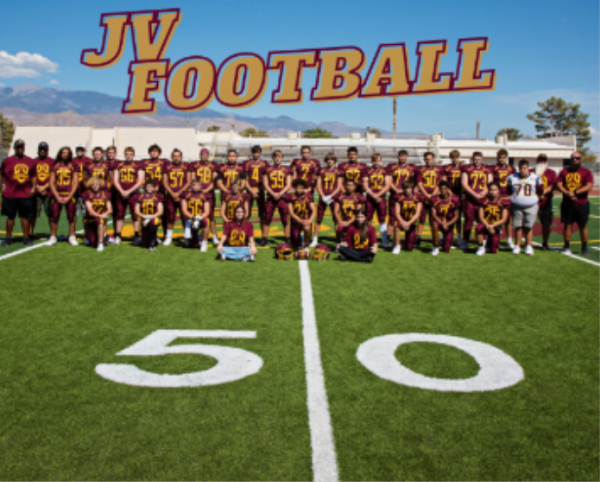The Presidential Debate Nobody Remembers, but Needs to be Seen
In 2016 in Orlando Florida, the first ever televised debate for the Libertarian political party took place and was broadcasted by C-Span in anticipation of the 2016 Presidential election.

The Libertarian Party is a political third party in the United States, and their unique, strange, and aggressively anti-government ideology has made it hard for them to gain positions in the government they wish to minimize. On the morning of May the 28th, 2016, in Orlando, Florida, a Presidential Debate was held by the Libertarian Party to allow the 5 candidates running for the party that year to explain their views and attract support in the vote for the nominee who would go on to compete against the Democrats and Republicans in the national election. This debate was historic, as it served as the first ever televised debate for the party, and what was captured on camera is a fantastic display of why exactly this third party can never seem to break into mainstream consciousness and challenge the two party system.
Before the debate, a musical tribute was given to the event, followed by the event’s moderator Larry Elder giving a brief explanation of history of the party, after which the candidates, McAfee antivirus creator John McAfee, press publication owner Darryl Perry, former New Mexico governor Gary Johnson, political activist Austin Petersen, and physician Dr. Marc Allan Feldman took the stage, writing their signatures on a sign to mark their participation in this unprecedented event. The discussion began cordially enough with each candidate introducing themselves, and then giving an explanation of what exactly a Libertarian is. Each candidate gave a varying answer, but the most concise and appealing had to be from McAfee, stating, “Libertarians are people who believe that our bodies belong to ourselves, not to the government, what we insert into our bodies and our minds is our own business. We do not harm one another, we don’t take each other’s stuff, and we keep our word.”
The topics discussed ranged from standard issues that any other party’s candidates would be asked about, such as the Iran deal, how to best combat Islamic terrorism, and immigration, to things that one would be hard pressed to find asked at a DNC or GOP event. Among the more unique questions was whether or not each respective candidate thought that entering the world wars was ethical, to which the general consensus was that the second was entirely justified due to the United States’ right to defend itself.
The issue that the candidates and Libertarian voting base appeared to have the greatest passion for overall though, had to be that of a government issued driver’s license. Perry gave an especially aggressive response to the query of the necessity of a driver’s license, proclaiming, “The government requires licenses for far too many things. The government requires licenses for people to broadcast radio. The government requires licenses to get married. They require a license to drive. What’s next? Requiring a license to make toast in your own dam* toaster? Absolutely not!” something the crowd absolutely adored, meeting with roaring applause. Conversely, Johnson’s conflicting response of, “A license to drive? I’d like to see some competency exhibited by people before they drive,” was met with an uproar of booing and shouts of disapproval.
A very interesting aspect of the debate all throughout was the general civility of it between the candidates and how although some of their opinions were greatly disapproved of by the audience, a general sense of unity managed to permeate the event. No one went out of their way to attack any of their peers, and the candidates tended to agree on most of the issues. Certainly a breath of fresh air given the modern political landscape, as well as the landscape of the time.
The event concluded with a closing statement from each candidate, allowing Dr. Feldman to give a passionate and rousing speech. Afterwards an auction was held to sell the sign marked at the beginning, so that whoever was willing to pay the most could own a piece of history. The general atmosphere among those in attendance was that of hopefulness and a galvanized drive for the Libertarian cause.
The vote for the Libertarian candidate to go on in the national election was held the next day on the 29th, and surprisingly, the least charismatic and seemingly most disliked among the debate, Gary Johnson, came out on top, with Austin Petersen and John McAfee following for the top three.
In terms of Johnson’s success in the national election, a growing distaste for the two party system gave third party candidates more attention than usual, a phenomenal opportunity for him and the Libertarian party. After a particularly idiotic and particularly publicized interview in which Johnson did not know what the city of Aleppo in Syria was, he did not fare very well in the election however. Overall Johnson and his running mate Bill Weld only received 3% of the popular vote, and a grand total of 0 electoral votes.

The unique and occasionally bizarre positions of the Libertarian party have made it hard for them to rise above the mantle of third party and penetrate the white house, something not at all helped by the candidates. The convention of 2016 is an amazing window into the ideals and nature of many of the party’s candidates, and due to the record of it, serves to set a precedent for the way they handle themselves and debates moving forwards, something that must be tweaked if they wish to be taken seriously.





